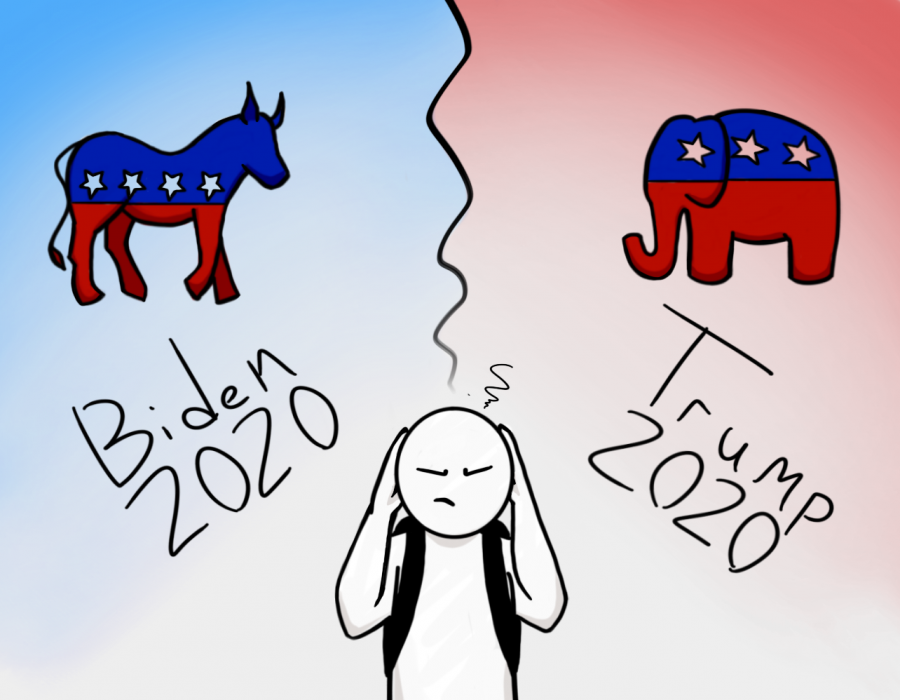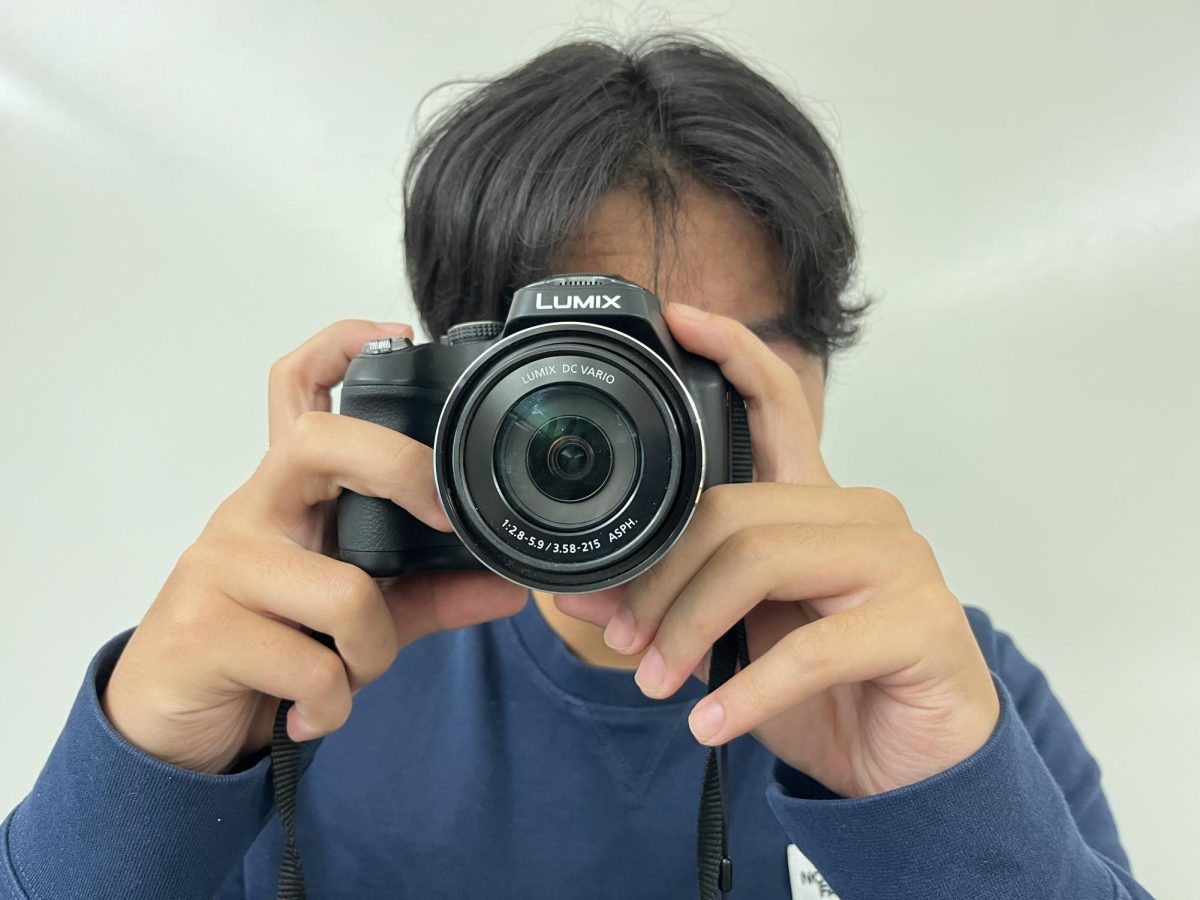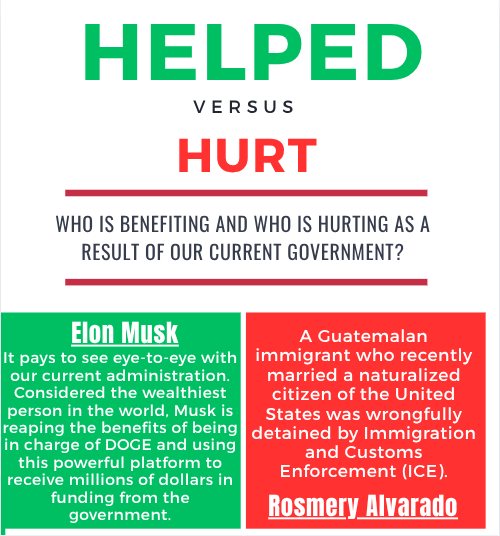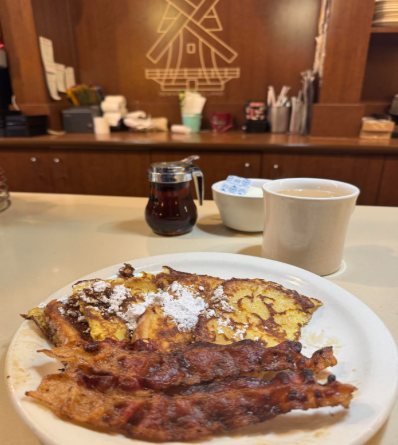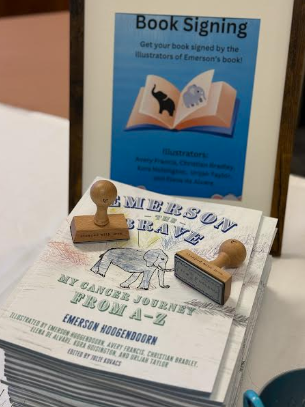It is 9:00 on a school night and I can’t focus on my homework. The subjective clamor of a news host penetrates through my bedroom door. My parents are upstairs watching the news. In spite of my mom turning the volume down after I asked, my parents’ political opinions continue to seep through the door even louder.
I finish my homework and decide to scroll through Instagram to unwind, only to find myself more stressed reading story after story of political slogans, pictures, and propaganda. Most of the pictures are contradicting the exact conversation I just overheard my parents having.
The next morning at school, one of my teachers starts digressing from the original lesson onto a political tangent, but I am not surprised. It seems as though every day political opinions slide their way into the classroom discussion. While I know teachers do not intend to push their political views on me, sometimes it feels that way.
As my friends and I sit down for lunch, our conversation starts off with the football game Friday and somehow ends in a rant about the presidential debate. We have different opinions on this political matter, and it feels as though I could reach out and cut the tension with a knife.
Just like that, it feels as though every area in my life has been surrounded by the mess that is politics. I feel tension and division between my friends, teachers, and family.
It never occurred to me that politics were not always this pervasive until my dad said something along the lines of “when I was your age, I didn’t have to deal with any of this.”
Politics did not used to create the division that we see today. Instructor Cathy Engel said, “People would just say they didn’t like the current president but it was never any disrespect, it was never arguing and yelling, it was never name-calling, it was just normal life. It was not nearly the tension that we see with students today. No one walked around on election day wearing paraphernalia for either candidate. Where today, I see students wearing MAGA hats. We see the stickers on water bottles for either candidate. That was not part of my experience when I was in high school. We knew about it, we talked about it, but it never caused tension, in my experience at least.”
Students weren’t nearly as involved. Instructor Ryan Burke said, “I mean, obviously, this is really different for everyone, but I don’t think I was politically involved at all in high school let alone having to have a virus to worry about. There wasn’t a huge drive for anyone in my peer groups to be politically informed. I think as heated as it got would be mock elections in government class or something like that.”
Burke also said, “I think some of that is reflective of how you grow up as well if you have parents who are super into politics, mine were not, I think it would have been slightly different. But even then, there wasn’t a huge drive for anyone in my peer groups to be politically informed.”
Politics didn’t create the anxiety in teenagers it does today. Instructor Laurel Soto said, “This was NOT my experience in high school. I went to WO, and it used to be required to take government during my senior year. We learned a lot about politics in that class but outside of that, I don’t think my friends and I talked about it at all. We didn’t have 24-hr news coverage back then and didn’t have social media keeping us informed all the time, so it just wasn’t a big deal to me when I was in high school. It did not cause me anxiety.”
Today, however, politics seem to emerge everywhere in the lives of teenagers. To some, it may seem encouraging that teenagers are more politically informed than generations before. Our country is in need of politically informed voters. But while politically involved teenagers could benefit our country, it is creating division among friends, parents, and teachers. Having politics incorporated into every area of life is stressful, and most WO students agree that politics adds to their stress on a daily basis.
Sr. Adria Hamilton said, “The current political climate does add a lot of stress in my life on a daily basis. The election and all the drama associated makes me stressed, and I feel as though my life is going to be affected once this election is over, no matter who wins. The thought of that is stressful as well, and it seems as though many cases like COVID-19 is a political thing when it should be a health concern.”
“I feel unsure with the future of our country. I feel that everyone is butting heads and fighting. No one wants to see the other side, which is dividing our country. Politics definitely creates tension. Many times I don’t voice my opinion on certain topics because I know people around me will look at me differently if I say them,” Jr. Meagan Rockafellow said.
The division and tension politics provoked between teenage friends is undeniable. “I have had to remove friends from my life because of different political views,” said Sr. Katilyn Kuchek.
Jr. Paige Bomhof agreed that politics creates division between her and her friends. “I am a conservative student here at school, and all the time my friends are talking about things that I do not agree with and I simply sit back and don’t even talk to them. It ruins lunchtimes, classes, and relationships. Some friends I am not even close with anymore because of this.”
That perspective is held by other WO students. Jr. Natalie Wilcox agreed that at times there is political tension between her and her friends. “I have very different beliefs than some of my friends and there’s definitely tension and awkwardness at times. A lot of issues that shouldn’t be political like racism and science have become political, and it makes me feel like I can’t have those in-depth conversations about issues in our society without it immediately turning into an argument.”
“I talk to my friends about politics frequently. Whether in person or on social media, it’s a very pertinent topic right now because of the upcoming election. It causes a lot of tension because biased media has given rise to drastically different opinions. It’s no longer just Democrats vs. Republicans; political opinions have meshed with morals, and it can be really messy,” Sr. Bella Kephart said.
Politics is unfortunately finding its way into the classroom and creating stressful situations for students. Many students reported that their teachers use their platforms to express their political opinions.
“I do think that they (teachers) can be biased with the videos they show us in class, and sometimes when politics come up in class, and they voice their opinion, I feel as though they are trying to force their opinions onto us. I do feel it’s biased, and I sometimes feel uncomfortable when teachers talk about politics because I know many students have different opinions,” said Hamilton.
Kephart expressed when teachers voice their political views, it can be overwhelming at times. “It is interesting to hear about their points of view, but this year it can be a little bit grating. We’re in class for two hours at a time, and there are some teachers who are spending a lot of time talking about politics and current events. Between the onslaught of New York Times notifications on my phone and my teacher’s hour-long rant on immigration laws, it can be a lot to take in.”
Unfortunately, politics doesn’t stop there, it continues to butt its ugly head in family relationships.
“My parents have completely opposite views regarding the BLM movement (and other problems facing America today) as mine. This creates a huge tension, and my parents and I have grown apart due to it,” said one WO student.
Parents and their children are growing apart over different political views. With as much political misinformation out there, teenagers need their parents more than ever to help make sense of what is right.
Yet, another WO student said, “I can’t say my opinion. If I say it, I will either be praised or made fun of and get a lecture that I don’t want and need. It definitely creates tension in relationships. My dad and I don’t always agree. We normally stop talking about it because we both know we won’t agree with each other.”
“My parents talk about politics more often during these times. Most of the time we have a good conversation, but sometimes I get angry because I don’t agree, and sometimes I get annoyed,” Sr. Kaley Hendrick said.
Teenagers today feel pressured to be politically informed. Hendrick said, “Yes, I feel pressured to be informed politically. It can often come up as a topic in-class discussion, or at the family dinner table, and you feel the pressure that if you say even one thing wrong, or false information, it can lead to a bad controversy. I never felt any pressure before, but I think where we are in this uncertain time, it is important to be educated on politics.”
Jr. Grace Pederson also agreed that she feels some pressure to be informed politically “because it is always talked about at school, so I feel like I need to be up to date.”
There is pressure to be politically informed, but the second teenagers voice their opinions, division is created between family members, friends, and teachers. While this generation of teenagers may be the first who are politically active, what is the cost? Should it come at the cost of teenagers’ mental health? Should it come at the cost of added stress? Family division? Ruined friendships and relationships?
If even teenagers feel the political divide, what does this mean for the future of our country?

